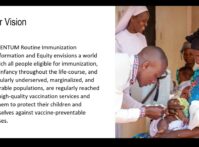-
ECSP Weekly Watch | November 27 – December 1
December 1, 2023 By Angus Soderberg
A window into what we are reading at the Wilson Center’s Environmental Change and Security Program
Why is COP Important?
Governments, policymakers, advocates, and observers have entered another annual UN climate conference cycle. Known as a “COP” (or “conference of parties”), these annual government-level gatherings focus on climate action, including assessments of progress toward the Paris Agreement and the creation of even more ambitious plans.
Today marks the beginning of COP28, which is viewed as a turning point in the ongoing process. This year’s conference will focus not only on what stronger climate actions will be taken, but also the mechanisms by which they will be delivered. UN Secretary-General António Guterres has warned of catastrophic consequences from insufficient action, citing the fact that Antarctic sea ice is at an all-time low, as well as the potential for a 3°C global temperature rise if immediate action is not taken.
Against the backdrop of the war in Gaza and with a new focus on relief, recovery, and peace, this COP—which is hosted by the United Arab Emirates—is poised to make headway on addressing the links between climate adaptation, conflict, and peacebuilding.
LISTEN | Relief, Recovery, and Peace: Peter Schwartzstein on COP28’s New Theme
Africa’s Goals at COP28
Africa has borne the brunt of the climate crisis this year. The Horn of Africa has suffered an extreme drought. Somalia and Kenya have seen extreme weather events force mass displacement. And Cyclone Freddy killed at least 1000 people in Southeastern Africa.
Such calamities mean that the continent is prioritizing urgent action at COP28. The African Group of Negotiators (AGN) has begun leading advocacy efforts for a just energy transition, emphasizing the continent’s right to accelerate fossil fuel production for industrialization before investing in green energy sources. This stance faces opposition from the European Union and activists who argue for a rapid shift to renewables in Africa.
Climate financing is another key issue for African countries at COP28, as they make demands for funds to build infrastructure and adapt to climate change. Despite promises of $100 billion in annual climate financing from more developed countries, the actual funds reaching Africa thus far have been insufficient. This is a dilemma that the AGN also plans to address in Dubai.
READ | Africa’s First Climate Summit: From Victim to Leader?
A Humanitarian Paradox at COP28: Could Less Be More?
Climate and weather-related funding needs have grown by 800% between 2002 and 2021. This trend has been especially difficult in vulnerable or poor communities, especially those in conflict-affected states.
The importance of accelerating efforts to “disaster-proof” vulnerable communities must go hand-in-hand with the messages surrounding relief and recovery at COP—including more attention and funding for fragile and conflict-affected states, and greater focus on preventing crises before they happen.
Humanitarians may have to compete with adaptation actors for the limited funding which will be available at COP28. Yet while they might take a more central role by prioritizing resilience over response to align with climate adaptation efforts, this would perhaps alter the focus that has hitherto been on relief.
LISTEN | Relief, Recovery, and Peace: David Nicholson on COP28’s New Theme
Sources: UNFCCC, NASA, NSB, UNHCR, Al Jazeera, African Group of Negotiators, Relief Web
Topics: adaptation, climate change, climate finance, conflict, democracy and governance, development, disaster relief, environment, environmental health, environmental peacemaking, environmental security, extreme weather, Eye On, flooding, food security, human rights, humanitarian, international environmental governance, livelihoods, loss and damage, mitigation, risk and resilience, water, water security
 A Publication of the Stimson Center.
A Publication of the Stimson Center.







